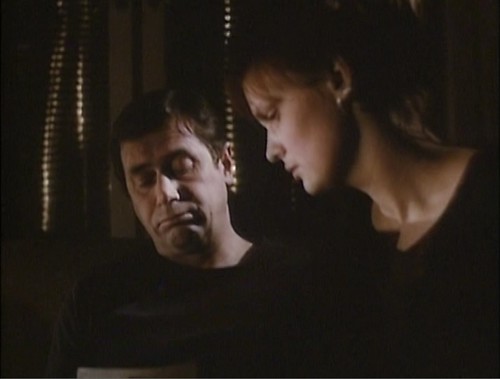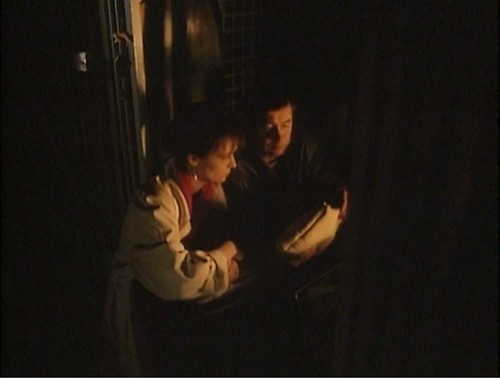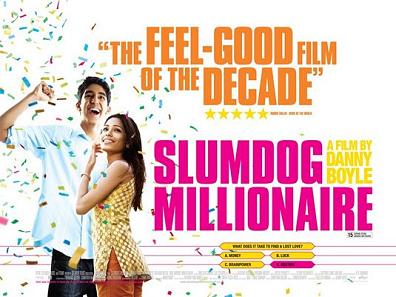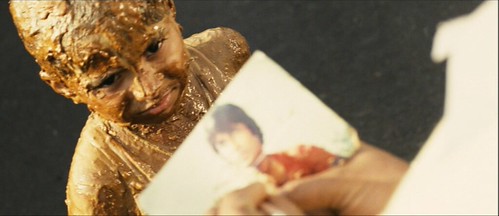
Pauline Kael—who I’m apparently apt to quote—said that we shouldn’t view movies in a vacuum. When we see a movie, we should bring all our experiences and everything we’ve seen, read, or heard into the theater. The way we perceive one movie can inform us of how or why another one works so well, just as drawing on our own experiences can. I’ve been kind of slow to write about Decalogue IV, but I think I’m finally ready to do it, in part because of a short story I read by Raymond Carver. The story is “Will You Please Be Quiet, Please?” from the collection Short Cuts.
So what on earth does an American short story with no religious connotations have to do with a Polish television series based on the Ten Commandments? For me, a lot. What fascinates me about Decalogue IV is not its connection to the 4th Commandment so much as its depiction of a relationship changed by discovery. It’s not preaching or attacking the 4th Commandment, nor is it bringing it to the forefront. Rather, the Commandment can be considered in the context of the story; it can be considered in the drama and the situation the characters are in. This is one of the series’ greatest strengths; the Commandments are hardly depicted literally and the whole point of the movies isn’t reduced to some contrived fable tied down to them. Decalogue is about the people that populate its narrative, in a way that is not at all dissimilar to Short Cuts.
In “Will You Please Be Quiet, Please?” we see a happily married couple dredge up an incident three years ago where the husband, Ralph, suspected the wife, Marian, of cheating on him at a party one night. While Ralph has always inferred there was an affair, he has never known for sure. The doubt that existed was insular, and effectively buried the incident under a veneer of tranquility. But that peace is more a prison than anything else; a stasis that traps Ralph and Marian in a quiet frustration that is itching to bubble to the surface. Their situation is like a family of a missing person who is suspected to be dead but is never found. This eats at the mind, to the point that you’ll do anything to discover—or reveal—the truth.
In Ralph and Marian’s case, either their lack or harboring of the truth provides the impetus for catharsis; they need some way of releasing their frustrations. The great thing about Carver’s story is that it doesn’t offer some pat conclusion to such a weighty dilemma, because any such solution would invariably feel contrived and simplistic. The story simply marks the crossroads that countless people have found themselves at throughout their lives. Carver suggests such a catharsis can be therapeutic, but doesn’t endorse it as some kind of magic solution. This is all conveyed subtlely, through actions that are realistic, not melodramatic:
“He tensed at her fingers, and then he let go a little. It was easier to let go a little.”
“Will You Please Be Quiet, Please?” carries a strong similarity to Decalogue IV, not only in content—uncovering a secret that has been waiting to be discovered—but in the catharsis a discovery produces. Decalogue IV, too, has a secret that’s been harbored by the father, Michal, from his daughter, Anka. This secret is in the form of a letter Anka’s mother wrote shortly before she died. Michal keeps this letter in an envelope marked “To be opened after my death.” Anka knows of this letter and when Michal goes on a business trip and leaves it behind, she decides to open it.
She finds a secluded spot by a lake and carefully cuts the envelope open with scissors, only to discover another envelope inside marked “To my daughter, Anka.” As she’s about to open it, a man walks near her carrying a canoe over his head. The man causes her to reconsider and it is here that we find the movie at its most poetic and conscious of its religious theme. It is such a classically Kieslowskian moment, to have a complete stranger inadvertently give Anka pause. Who this man is and what he thinks hardly matters, and while it’s possible to see him as some sort of surrogate God judging her, such an interpretation is beside the point.
What matters is the moment provides a break that causes Anka to reevaluate her actions. Whether or not she’s considering the 4th Commandment, she refrains out of respect and love for her father. As soon as she opens the first envelope, she can tell her father didn’t write the second; how could she if the writing is clearly different? “To my daughter, Anka” must’ve been written by her mother. Like Ralph in “Will You Please Be Quiet, Please?,” Anka can pretty much guess at the letter’s contents. We know that Anka is no idiot anyway—her physical examiner tests both her eyesight and intelligence by spelling “father” in English with the eye chart letters and, not being able to see well, Anka guesses the smallest letters. But rather than simply affirm her suspicions by reading her mother’s letter, she instead forges another in her mother’s hand, using this one to confront Michal.
I don’t think trying to explain why she chose this route is the best use of our time, simply because she becomes a psychiatric case study for us to scrutinize. Our explanation might make sense, just as the psychiatrist’s does at the end of Psycho, but it too will invariably come across as sobering, contrived, and silly. Robert Altman writes of Raymond Carver:
“[…] what he really did was capture the wonderful idiosyncrasies of human behavior, the idiosyncrasies that exist amid the randomness of life’s experiences.”
You could say the same thing of Kieslowski. His movies, so often filled with random or tangential moments, flow with the spontaneity and artistic license we associate more with music than with movies. These moments are almost never rationalized and why should they be? Not only should movies allow the audience to suspend their disbelief, but irrationality is something that informs the human experience. We always seem to try and explain why every single thing happens in movies and criticize the irrational, but maybe we ought to take a look at ourselves first. No doubt we’ve done countless oddball actions that we fail to rationalize. Every little action in a movie, too, needn’t be examined with a fine tooth comb.
What is important and what should be discussed is the cathartic ramifications of Anka and Michal’s actions. For Michal, he’s been harboring this letter for years and years and while he doesn’t know the contents, he can pretty much infer that he’s not Anka’s biological father. Michal is informed by dialogue like “I don’t know.” He’s plagued by uncertainty, and his plans to give Anka the letter failed to pan out; she was either too young or too old. Yet the urge to reveal whatever is in the letter—and be honest with his daughter—finally causes him to leave the letter for her to open. He is a dam, overburdened with secrets and yearning to burst in catharsis.
His passive method of basically baiting Anka with the letter reveals the fear and anxiety he has with confrontation. Anka says: “You want things to happen without being involved.” Indeed, this is true of many of us. Reality is often too frightening to face, so we instead hide behind letters, email, texting, phone calls; sometimes we’ll simply bury ourselves, taking refuge in a book, games, or a movie in hopes that what we’ve done will take care of itself. But we can’t shun reality, and our vacillations and refuges only exacerbate the problem. “Out of sight, out of mind” only makes sense in the moment, and doesn’t provide us with any lasting comfort; it is only a temporary reprieve.
Both Anka and Michal are living a lie by not discussing what they know to be true. Their conversation reveals the change in their relationship; it’s no longer as simple as the father-daughter dyad. The complexity is that Michal sees Anka not just as a daughter but as a woman as well. She sees him not simply as a father but as a man. He does feel jealousy when she sleeps with men and she does feel unfaithful. It’s hard to say whether they’ve always felt that way or whether they are simply reinterpreting their feelings in the context of discovering the truth. For me, it's the latter; our interpretation of feelings isn't concrete and something like jealousy can be transmuted from something more universal like the need to protect. After all, fathers are bound to be protective of their daughters; it’s just the way things are. Michal could simply be considering that paternal instinct in light of discovering he's not Anka's father.
Confrontation is neither destruction nor reparation; it’s a precursor for either one. When Anka discovers Michal doesn’t merely think of her as a daughter, she undresses and offers to sleep with him. It’s such a raw and vulnerable scene, one that she does out of frustration; we almost hold our breath at such a tense moment, knowing that one action could be irreversibly damaging to their relationship. Michal values that too much, however, choosing to paternally cover and embrace her. Such moments are extremely risky, but Kieslowski pulls it off beautifully, in part because he never loses sight of the character’s humanity. The morning after, Anka wakes in panic, unable to find Michal and thinking he’s left for good. He hasn’t, and she sees him walking outside to get milk. Such a simplistic, everyday act tells us that reparations have already begun.
I’ve never regretted seeing a Kieslowski movie. The great thing about him is that, for all the intense emotional situations he creates, he’s never made an excessively bleak or exploitative picture *cough* White Ribbon *cough* Antichrist *cough*. He offers us hope in the face of tribulations that never lose their realistic weight. It’s a tight-wire balance that countless movies have fallen off of and in doing so, they’ve lost their dramatic relevance. The Decalogue is a wholly unique and special work precisely because it doesn’t force feed us an agenda. Rather, its themes are integrated in the realism of the story and the characters, who aren’t even characters so much as real people facing problems like anyone else.


